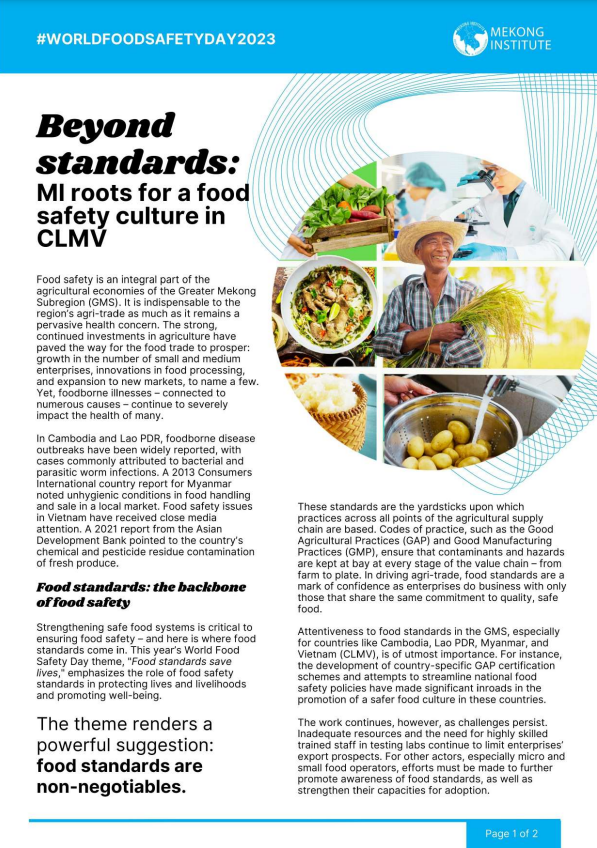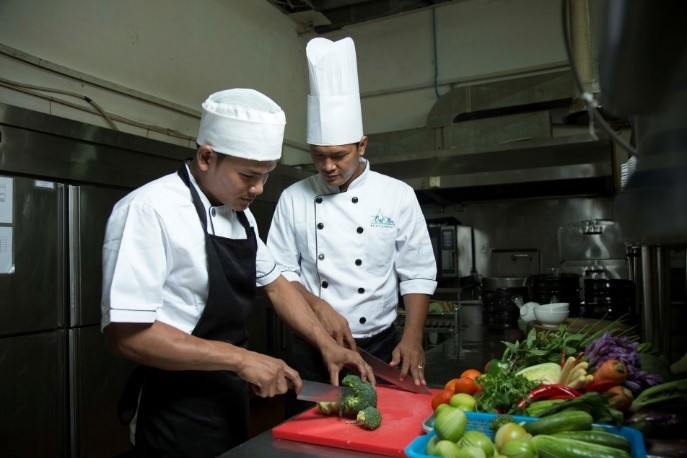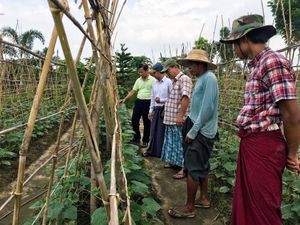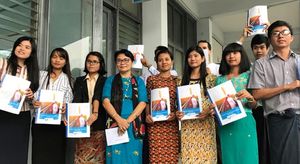WAYS FORWARD FOR RESILIENT CAMBODIAN FOOD MSMES
Author: Ra Thorng Beginning in 2020, Mekong Institute (MI) and the New Zealand Aid Program (NZAP) launched a series of hybrid PROSAFE forums in Cambodia, Lao PDR, Myanmar, and Vietnam to come out with a cohesive multi-sectoral approach that will scale up the competitiveness and resiliency of the agri-food industry against a pandemic climate.In this …
THE RIPPLE EFFECT OF STRENGTHENING LOCAL FOOD SAFETY EXPERTISE
Small and medium-sized food enterprises (SMEs) are the backbone of Cambodian economy. However, the country’s food manufacturing sector continues to face numerous challenges in ensuring that the food processed and distributed, especially by local agro-processors, are safe.Inadequate resources and expertise remain to be the biggest constraints in complying with a number of food standards and …
THE RIPPLE EFFECT OF STRENGTHENING LOCAL FOOD SAFETY EXPERTISE Read More »
THE MARK OF SAFE FOOD
Globalization has sparked an increase in consumer demand for a wider variety of foods, resulting in a longer, if not more complex, global food chain as well as the industrialization of agricultural systems in order to meet this rising demand. This also means that more actors and players are concerned in the big task of …
PROSAFE: WORKING TO MAKE FOOD SAFE
Author: Maria Theresa S. Medialdia For countries in the Greater Mekong Subregion (GMS), agri-food is a driver of food security, poverty alleviation, and regional economic integration. Given the abundant agri-food diversity in the region, Cambodia, Lao PDR, Myanmar, and Vietnam (CLMV) have tapped these resources to secure holistic socioeconomic development. However, in the same vein …
PLACING STREET FOOD IN SAFE HANDS
AUTHOR: HUYNH THI THUY HANH In Ho Chi Minh City, 95 percent of Vietnamese buy street food. The ubiquitous sight of food stalls, conveniently located in busy streets to alleyways, from school gates to bus stops, markets to the parks, have made street food an indispensable part of locals’ everyday diet. In proportion to the …
PANGASIUS CLUSTER
GOOD THAT MARKET INFORMATION BRINGSPangasius, or more popularly known by its local name tra, is one of Vietnam’s major export products. Top import markets are the US and EU, and in the last couple of years, China. In 2015, the tra fish started making its way to South Korean and Russian markets, all thanks to …
ORGANIC RICE CLUSTER
What’s in a name: building brand competitiveness — story of the organic rice cluster, Prachinburi, ThailandBranding can make or break a product’s performance in the market, and in the face of competition, the right branding can make a product stand out in a sea of similar competing products. With Thailand aiming to join China and …
MAKING MARKETS WORK FOR SAFE FARMERS
MYANMAR FARMER GROUP’S EXPERIENCE IN PILOTING ‘SAFE FOOD FROM SAFE FARM’ AUTHOR: DWIGHT JASON RONAN It was a sunny Saturday morning and several people have started to gather around the small stalls lined up along Nat Mauk Street near Yangon’s Kandawgyi Lake. There is nothing unusual seeing a weekend market packed with shoppers—some of them …
MAINSTREAMING FOOD SAFETY IN MYANMAR UNIVERSITIES’ CURRICULA
With increased integration into the global food value chain, supply and demand are transcending borders, thereby, creating opportunities for emerging economies. New opportunities ranging from wider market access to favorable pricing strategies are inevitably challenged by the lack of knowledge and weak compliance to food safety standards and regulations. As such, education on international food …
MAINSTREAMING FOOD SAFETY IN MYANMAR UNIVERSITIES’ CURRICULA Read More »










